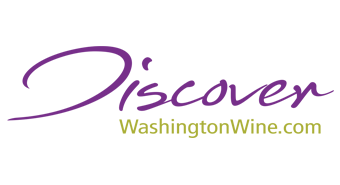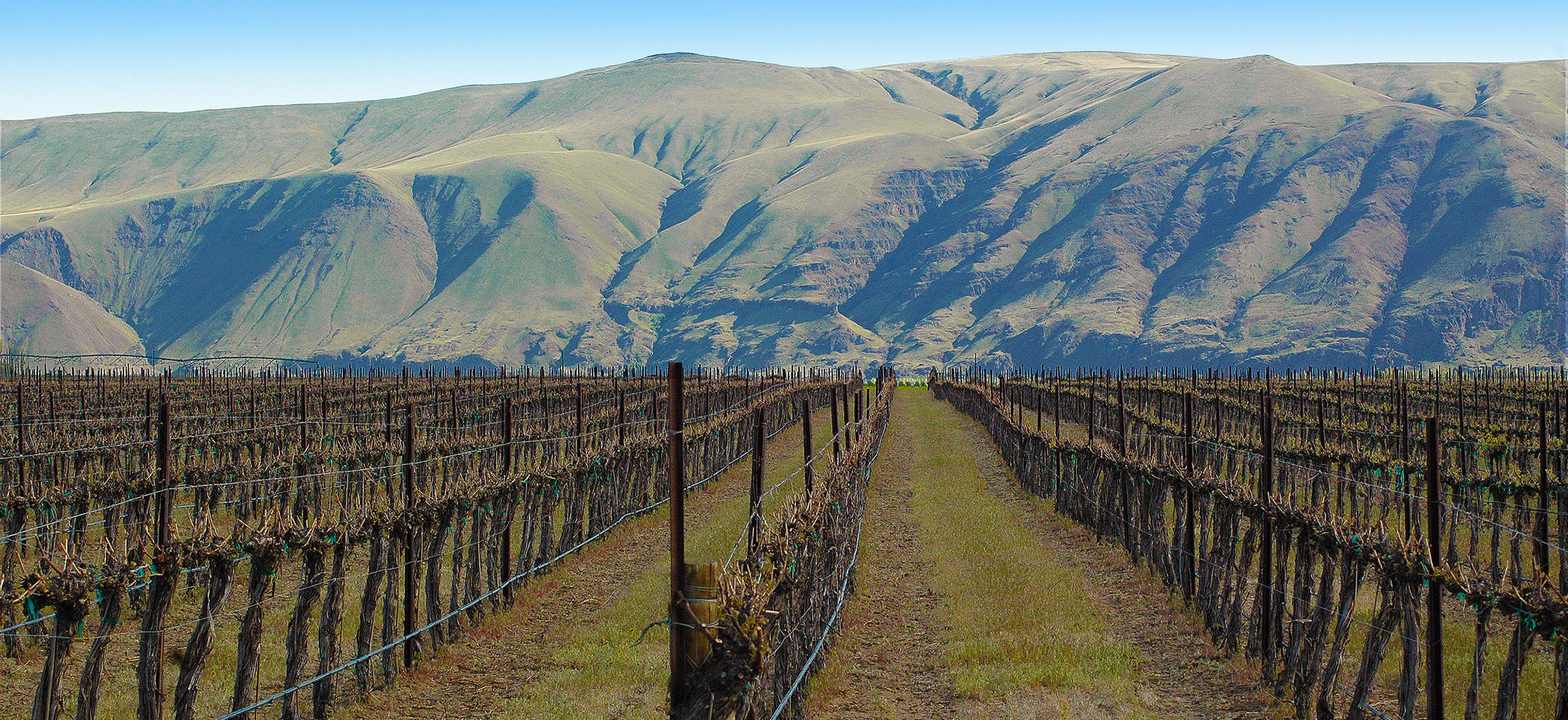Mike Thiede of Ginkgo Forest Winery Mixes Art
With Science When It Comes to Making Wine
By Sebastian Moraga
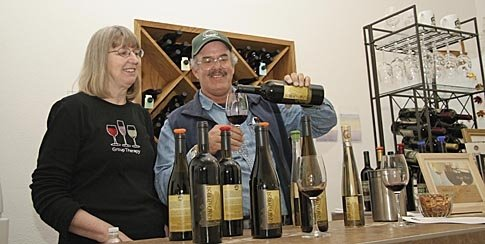
Mike Thiede, owner and winemaker of Ginkgo Forest Winery, and his wife Lois are all smiles as they get ready to taste one of the couple’s favorite wines — a 2016 Cabernet Sauvignon made from grapes grown in their estate vineyard in the Wahluke Slope.
With an artist’s quiet spirit and a scientist’s restless mind, Mike Thiede makes his wine in a faraway corner of central Washington state.
Just outside of Mattawa, a town of less than 4,000 people near the shores of the mighty Columbia River, Thiede uses the isolation of his winery as a plus, allowing him to tinker with his product, and to market his bottles of, among others, port, without having to worry too much about nearby competition.
With its tasting room open since 2007, the spark for Ginkgo Forest Winery came not only from the world of science (Thiede worked for many years at the Department of Energy’s Hanford Site in Richland, WA,) but because his estate vineyard (located in Washington’s Wahluke Slope AVA) is just down river from the Ginkgo Petrified Forest State Park in Vantage, WA.
It’s a park that thousands of tourists visit each year as they cross the Columbia River on Interstate 90. To honor the legacy of the Ginkgo tree, Thiede started planting Ginkgos on his property when he planted his first wine grapes. Today, there are more than a thousand Ginkgo trees on his property. So, when you visit Ginkgo Forest Winery, you can see what the live Ginkgo tree looks like and then visit the nearby petrified version of the trees.
When he bought the property, Thiede was thinking about starting a plant-tissue culture lab. He changed his mind about doing that and started growing apples and then he planted his first wine grapes.
He credits Doug Fries, former owner of Desert Wind Winery in Prosser, Washington and Duck Pond Wines in Oregon, with giving him the idea of growing grapes, calling him “my mentor.”
“I just jumped right into it,” Thiede says, adding that his background as a scientist played a big role. As a scientist, he likes to try new things and this new venture fit right in, scary as it was at first.
“I didn’t know if people would like our wines, and we had a pretty small facility. But people started liking our wines, and we started sending stuff into competitions and started pulling in gold medals, and it went on from there.”
The desire to try out new things did not dissipate with the start of the winery. In addition to grapes, he grows organic apples, as well as cherries. And in addition to wines, he makes a variety of distilled spirits, like ports.
Asked if he makes wine he would like to drink or wine the public would like to drink, he offers a one-word answer: “Yes.” That can be tricky, trying to please his own palate and that of the general public, but Thiede is up for it.
“I like challenges,” he said, crediting the idea of making ports to “an inspiration that came in the middle of the night.”
The first port was called “Port of Mattawa,” but it did not catch on in the south Grant County region like Thiede had hoped. Furthermore, there are strict rules about the use of the word Port on alcohol that does not hail from Portugal.
“There’s an identity crisis there that has never really been solved,” Thiede quipped.
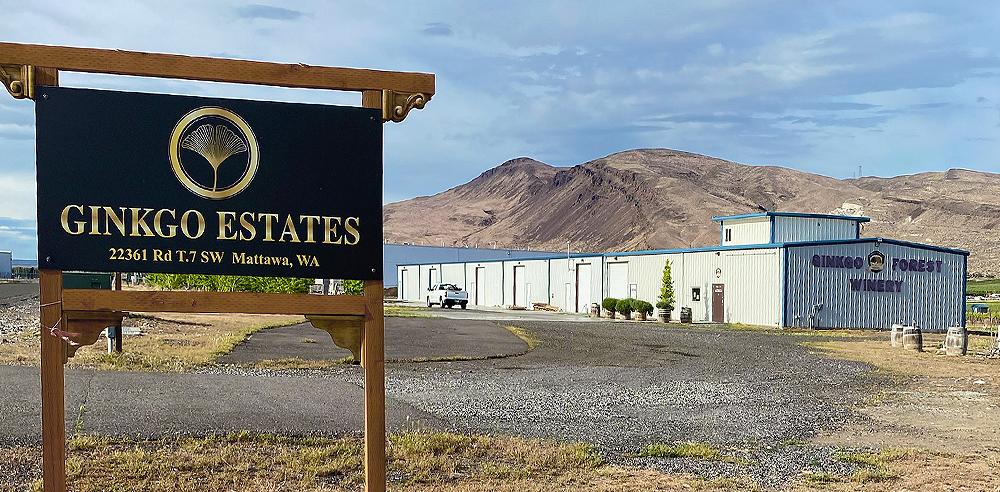
A sign out front welcomes visitors to Ginkgo Estates, which is home to Ginkgo Forest Winery’s tasting room and production facility located at 22361 Road T.7 S.W. in Mattawa, WA.
Nevertheless, Thiede pressed on, tinkering like the scientist he is.
“We changed the flavor. Most people when they say they don’t like ports, they are probably talking about the old ports: take a wine, dump a bunch of alcohol in it and bring it up to a certain level.” Instead, Thiede used lower alcohol brandy that he distilled from his own wine which also retained more of the wine flavor. Now his port-style wine is a bit of a hidden jewel among the treasures found at his Mattawa tasting room.
Regarding the future of the winery, he said “I would not say the winery is on its own yet. We haven’t taken any income off the winery, we just keep putting more capital into it.” The proverbial cheese, in this case, remains in the same spot, reaching the point where other people can take over the business side of the winery and Thiede can keep trying new things.
One such new thing is organic wine. It required getting licensed as an organic processor, and learning an entire new way of doing things in order to earn the right to put the O-word on the label, but it appealed to his scientific nature and his love of challenges.
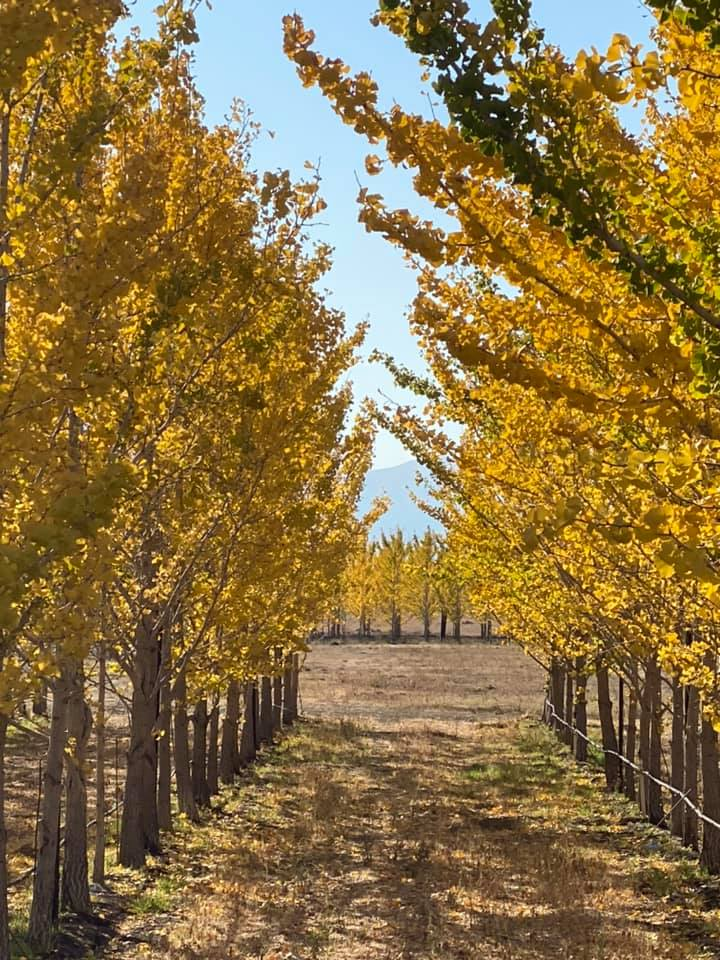
The last thing you would expect to see in a vineyard in Washington state is a grove of Ginkgo trees. But Mike Thiede has planted a thousand Ginkgo trees on his property in Mattawa, WA., since 2005 to honor the legacy of the ancient tree.
“That’s what we set out to prove, that you can make a good wine that’s organic,” Thiede says. Such challenges have become all the more daunting with the supply-side shortages experienced by businesses elsewhere, and the wine industry has been no exception.
“Bottle shortages, cork shortages, label paper shortages,” Thiede says. “Labor has been an issue throughout the pandemic. We’ve lost key people. We can’t provide medical insurance and stay afloat. We’ve had some issues.”
Prices are higher, too, with the price of bottles up two-thirds from its pre-pandemic days. “It has affected us quite a bit,” he said.
Nevertheless, Ginkgo Forest Winery sails on, with tasting rooms in Mattawa and Tacoma, WA. When asked why Tacoma, he said that the location, near four miles of public beach, seemed attractive to him.
After almost 20 years in the wine business, Thiede describes the relationship among the wineries in Washington as symbiotic. “Things go better when we all work together,” Thiede says, adding that having more wineries nearby in south Grant County would probably help.
“We are the only tasting room,” he says. “There’s a lot of Port of Mattawa property here, hopefully someone will move in. This site here has a lot to offer.”
The wine list attests to that. In addition to a 2010 Cabernet Sauvignon Reserve, Thiede offers a 2014 Grenache Reserve and a 2014 Mourvedre Reserve. Among reds and red blends, he offers a 2013 Barbera, a 2014 Barbera, a 2014 Cab Franc, a 2013 Coalesce, a 2014 Carménère, a 2014 Intrigue, a 2014 Malbec Dark Cherry Dry, a 2014 Pinot Noir, a 2013 Sangiovese, a 2014 Syrah, a 2013 Ginkgo Red, a 2014 Black Forest Red, a 2014 Wildfire Red, a 2016 Cabernet Sauvignon and a 2016 Merlot.
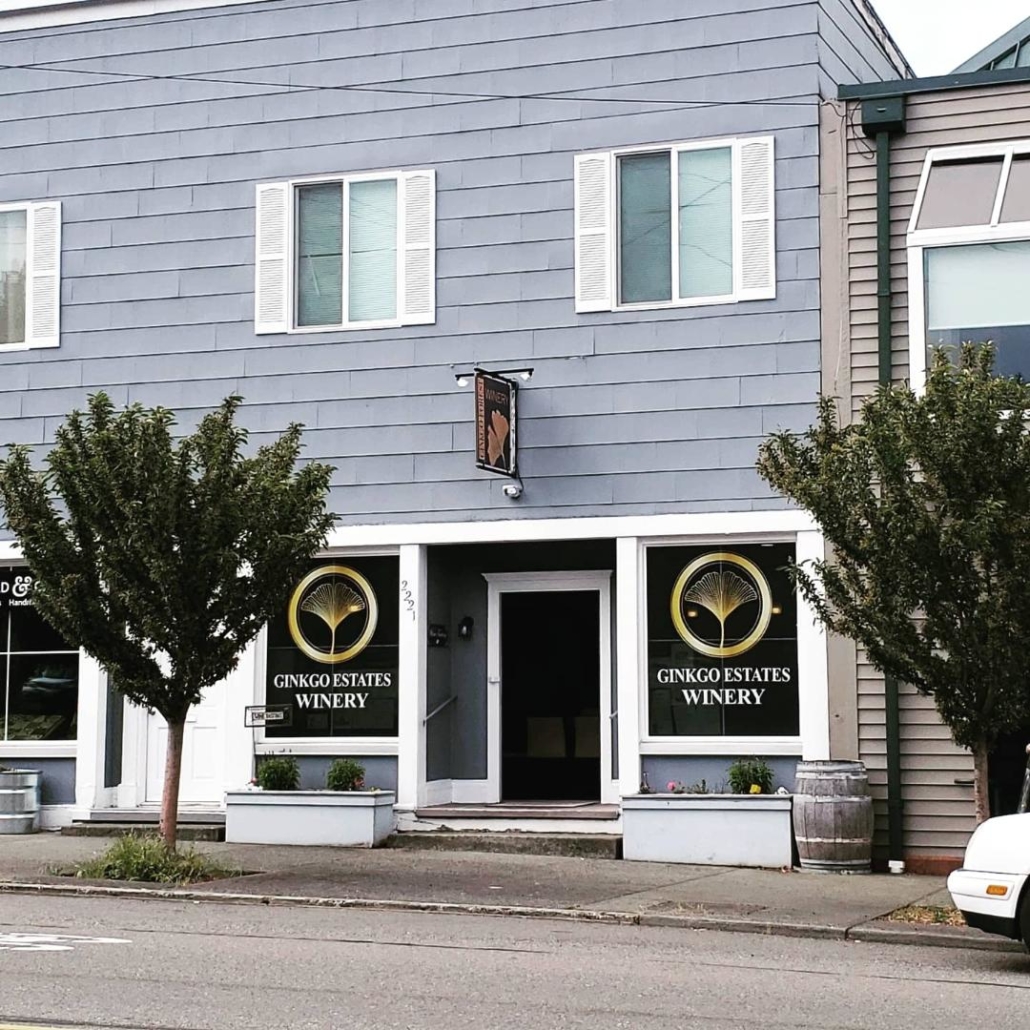
For fans of Ginkgo Forest wines who live in Western Washington, owner Mike Thiede opened a tasting room in Tacoma, WA. in 2013…and business has been brisk ever since. Open Wednesday through Saturday from noon to 7 p.m., it is located at 2221 N. 30th Street.
Among the whites, white blends and rosés, he offers a 2014 Riesling, a 2016 Riesling, a 2015 Sauvignon Blanc, a 2016 Viognier, a 2018 Botanical, a 2017 Rosé of Sangiovese and a 2018 Rosé of Pinot Noir.
Among ports, he offers a 2017 Late Harvest Syrah, a 2017 Late Harvest Riesling, a Cherry Chocolate Dolce, a Blueberry Infusion, a 2013 Sun in a Bottle, and a 2018 Late Harvest Gewurztraminer.
With the pandemic on its way out, Thiede is starting to increase the hours of operation, the days the wine tasting room is open, and slowly, the number of employees. Things are picking up just as slowly, he said, with folks still rather skittish about spending a lot on trips.
“Our wine club suffered the most during the pandemic,” Thiede said. “Wine club is all about the experience, coming into the winery and getting people to stay a while. And it pretty much destroyed the wine club. Average membership for wine club was three years, and we had two years where we didn’t have anything going on.”
Determined to carry on, Thiede has faith that things will pick up. He has devoted a decade and a half of his life to the winery and he is not ready to give up. Not with his scientist’s mind and his passion as a botanist giving him plenty of reason to believe.
“There is not much I can’t grow here,” he said.
Ginkgo Forest’s winery and tasting room in Mattawa is located at 22361 Road T.7 S.W. in Mattawa, WA. 99349. Phone (509) 932-0082. The Tacoma tasting room is located at 2221 N. 30th Street, Tacoma, WA. Phone: (253) 301-4372. The Mattawa tasting room is open Wednesday, Friday and Saturday from noon to 5 p.m. and the Tacoma tasting room is open Wednesday through Saturday from noon to 7 p.m. and on Sundays from noon to 6 p.m.
If you live too far away from either tasting room to visit in person, you can purchase all of their current releases by logging onto their on-line wine store at: www.ginkgowinery.com/buy-wine.
